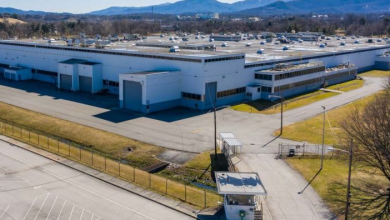Roanoke drug kingpin convicted on all counts in federal case

ROANOKE, Va. – The man at the center of the one of the largest fentanyl seizures in Virginia was convicted in federal court on Tuesday, according to United State Attorney Thomas T. Cullen.
Monta Orlando Jordan, 44, who authorities described as a Roanoke drug kingpin was convicted of:
-
Conspiring to distribute heroin, fentanyl, methamphetamine and cocaine;
-
Possession with the intent to distribute fentanyl
-
Attempting to possess with the intent to distribute cocaine
-
Attempting to possess with the intent to distribute heroin
-
Possession of one or more firearms in furtherance of the overall drug conspiracy
“Until his arrest in August 2017, Monta Jordan oversaw a drug distribution network responsible for dealing huge quantities of heroin, fentanyl, methamphetamine, and cocaine throughout the Roanoke Valley,” said Cullen in a news release. “Thanks to the hard work of the DEA, the Virginia State Police, the Roanoke Valley Regional Drug Initiative, the Roanoke City and County Police Departments, and supporting agencies, one of the biggest and most prolific drug dealers in recent memory now faces decades behind bars.”
Jordan’s extensive drug operation, which began no later than the summer of 2016 extended past his arrest, according to the evidence presented at trial.
While in jail, Jordan had his girlfriend smuggle in cell phones, one of which was in the spine of a fake binder of documents, designed to look like confidential legal mail.
Evidence at trial also established that before his arrest in August 2017, Jordan who also goes by the names “Ghost” and “Tae,” trafficked large amounts of drugs into the Roanoke-area through the mail and couriers, who drove from New York, North Carolina, Tennessee, and Ohio.
Further evidence showed that he received drugs by FedEx from Arizona and in turn, mailed large quantities of money to designated recipients in those states.
In July 2017, for example, the United States Postal Inspection Service intercepted two packages mailed by Jordan and his associates containing collectively just under $100,000 in cash, according to Cullen.
Inside one package alone, agents found a basketball wrapped in carbon paper and surrounded by miscellaneous chair cushions. The basketball itself had been cut and contained $49,950 in rubber-banded currency.
Between January and August 2017, Jordan received at least 36 kilograms of cocaine and a kilogram of heroin in Roanoke, at prices of $35,000 and $60,000 per kilogram, respectively, according to Cullen.
36 kilograms equates to a touch more than 79 pounds.
Jordan retrieved these deliveries at various locations around the Valley View Mall and made cash payments toward his purchases of as much as $320,000 during scheduled meetings.
On Aug. 10, 2017, authorities received information regarding a suspicious FedEx package designated for an address associated with Jordan.
Once they acquired a federal search warrant, agents opened the package to found about one pound of cocaine and a pound of heroin.
Agents replaced the narcotics with fake drugs designed to match the appearance and weight of the seized contraband, and made a controlled delivery of the FedEx package to its designated location.
In court, jurors saw aerial surveillance footage of Jordan retrieving the package from the target residence and proceeding toward Highway 122 in Bedford County.
Jordan was intercepted by state police and undercover surveillance units near the intersection of Highway 122 and Morgans Church Road, in Bedford.
In video footage of the ensuing police pursuit, Jordan could be seen throwing the fake drugs out the window and over a bridge, attempting to dispose of what he believed were genuine narcotics in his possession. He was taken into custody shortly after the packages entered the creek below, and has remained in jail since then.
While searching Jordan’s Ford Fusion, police discovered a secret compartment under the factory-installed carpet in the trunk which contained about 4.5 pounds of fentanyl, one of the largest seizures of its kind at that time.
The drug was contained in plastic bags and covered in an oily masking agent, designed to defeat the scenting capabilities of K-9 drug dogs.




